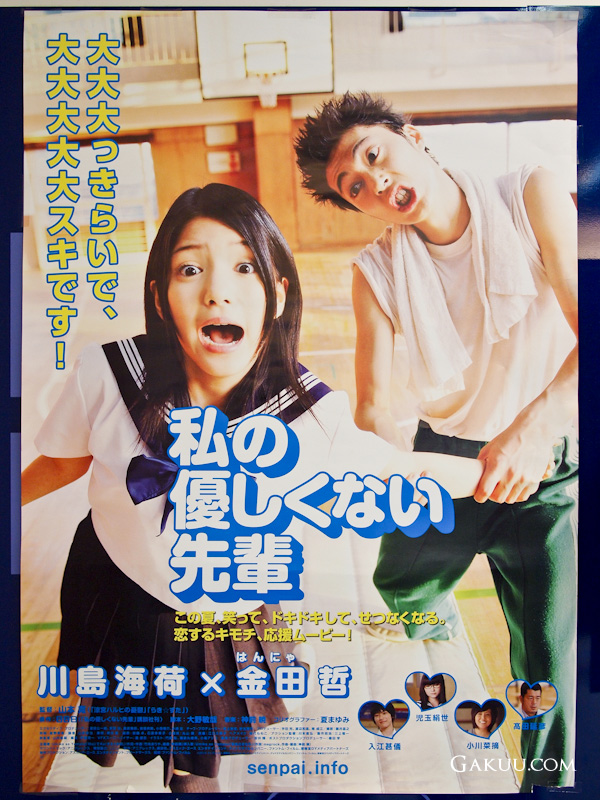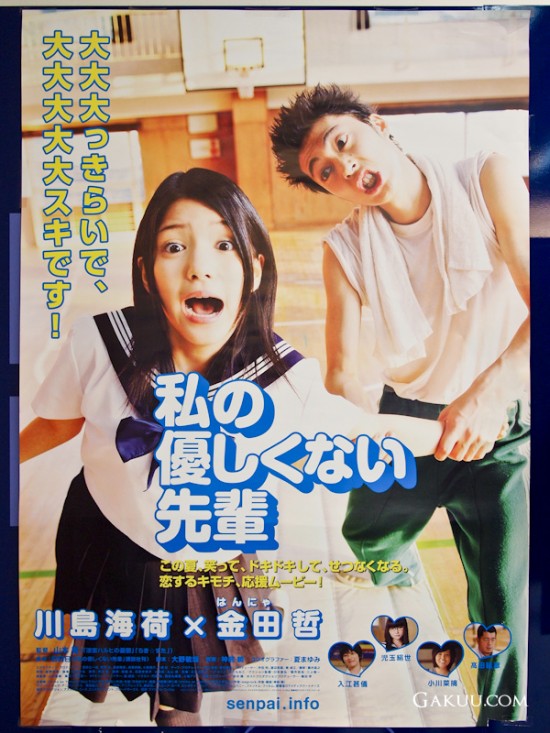Film posters can be good sources for a quick bite of Japanese without much effort. You have a large image to help you understand context and usually a catchy phrase that shows some of the more creative uses of the language.
This poster is clearly aimed for a younger audience, using very simple language, bold and evocative imagery. It’s a love comedy – and you don’t even need to understand a word of the language to know that! Fortunately, we are language students, so we can pick it apart a little more.
私の優しくない先輩。
わたしの やさしくない せんぱい。
My Mean Senpai
We had a whole host of new beginner members recently from the special Textfugu deal, so I imagine pretty much everyone on the site can understand this sentence! What’s interesting are the different ways you might translate it. My take is to ignore the negative 優しくない (unkind) and just outright use a positive synonym. Sounds better than ‘My unkind Senpai’, right? (Just in case you are wondering, the Japanese word 先輩 is the opposite to 後輩 (こうはい). They refer to a superior-subordinate relationship, like a senior and a junior, boss and employee, young and old. It’s an important Japanese cultural concept to grasp while learning the language, as the level of the relationship will determine your manner of speaking.
Senpai, then, would be the senior (student, in this case), and kouhai would be the junior. A junior would have to show more respect to a senior and generally use politer language and actions to show it. I left ‘senpai’ in the English translation because it’s one of those words that I feel has a special quality about it that is lost when translated to English. Other such words might include 元気 (げんき) and お疲れさまでした (おつかれさまでした).
大大大っきらいで、大大大スキです!
だいだいだいっきらいで、だいだいだいスキです!
I love him and hate him!
スキ?? You may be wondering why the word ‘like’ or ‘love’ is using Katakana. It’s for emphasis (as we looked at here). The opposite of love? Hate, of course – きらい. This also has a kanji (嫌い) but it is omitted here for simplicity.
That’s not all! Log in to see the rest of this lesson.
Or if you aren’t a member yet, please consider signing up.


Leave a Reply